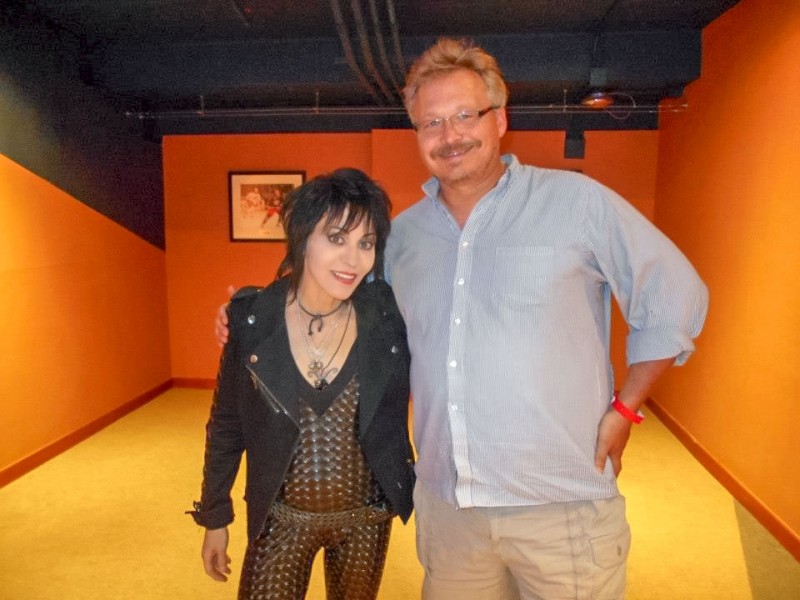I opened up my twitter feed two weeks ago to some terrible news: our friend Sean Kay died suddenly. I literally cried out “Oh no” and wept for my friend. I had just guested in his class in October, and we had a number of conversations in recent months in the lead up to the election. We were both looking forward to a better future. The news of Sean’s death was just another reminder that 2020 has been truly awful.
Many knew Sean through his scholarship and policy work on NATO. I got to know him over the last few years through our common interests in music and love for the environment.
A few years back Sean got in touch as he was finishing his book on rock music and political advocacy, which referenced my previous work on Bono and debt relief.
Sean was excited to recruit many friends and fellow musicians to talk about their music and the role advocacy played in their lives and work. He was able to enlist some amazing people to interview for that book which was replete with terrific stories from Graham Nash, David Crosby, Joan Jett, George Clinton, Bob Weir, members of Pussy Riot, Sinead O’Connor, among many others — the book had some 60 interviews.

He was optimistic about the emancipatory potential of rock music and wrote here on the Duck how political scientists can learn from musicians:
As scholars, we have much to gain from embracing the ethos of rock and roll. Being willing to take creative risks in our work, standing up for principles of freedom, engaging in more field work to understand precisely how culture shapes and motivates social trends are just a few ways we might embrace the rock and roll ethos. By valuing inclusion and appreciating our intellectual diversity as a strength and by reflecting on the music that has given us personal empowerment, we too might renew the ideals that got us into the profession in the first place.
Sean Kay
I knew Sean to be a performer himself and so he was both a fan of music and an artist himself.
Two years ago Sean invited me to Ohio Wesleyan to give a lecture on global climate governance, and it was a delightful visit. He had cycled in and out of Facebook in recent years, and I was looking forward to the day when I could join him for a paddle on a river, which was, next to music, one of his most favorite past-times. I didn’t have the pleasure to meet his family, but I know how important they were in his life.
I recognized him as a kindred spirit right away when we met just a few years ago. And with the passing of other scholars — Andrew Price-Smith, Lee Ann Fujii, Will Moore, in recent years who were about my age or like Sean a bit older, I have trouble processing the losses. When towering figures like Ken Waltz or Elinor Ostrom died, they had long rich lives, but Sean, Drew, Lee Ann, Will — they left us too young.
We won’t have the opportunity to read through their next set of articles and books (though I do know that some of that had unfinished work that their friends and family are trying to see the light of day). We will miss the joy of their company at conferences and visits. Their deaths also remind folks like me that our number could be up sooner than we think.
On Sean’s remembrance page, I wrote this note which captures how I feel:
Sean, I’ll miss you my friend. It was just weeks ago I called in to your class to talk about climate change action and the COVID crisis. As two music- and environment-loving middle-age guys, I thought we had many years of getting to know each other even better. I was looking forward to finding a time to get out there on the water and paddle with you or hear you tune up that guitar. I know many of your friends in our field are so sad to hear of your passing. We are wishing your family well, and we hope to keep you in our thoughts as we fight that good fight going forward. Rock on brother.
Joshua Busby is a Professor in the LBJ School of Public Affairs at the University of Texas-Austin. From 2021-2023, he served as a Senior Advisor for Climate at the U.S. Department of Defense. His most recent book is States and Nature: The Effects of Climate Change on Security (Cambridge, 2023). He is also the author of Moral Movements and Foreign Policy (Cambridge, 2010) and the co-author, with Ethan Kapstein, of AIDS Drugs for All: Social Movements and Market Transformations (Cambridge, 2013). His main research interests include transnational advocacy and social movements, international security and climate change, global public health and HIV/ AIDS, energy and environmental policy, and U.S. foreign policy.


0 Comments
Trackbacks/Pingbacks